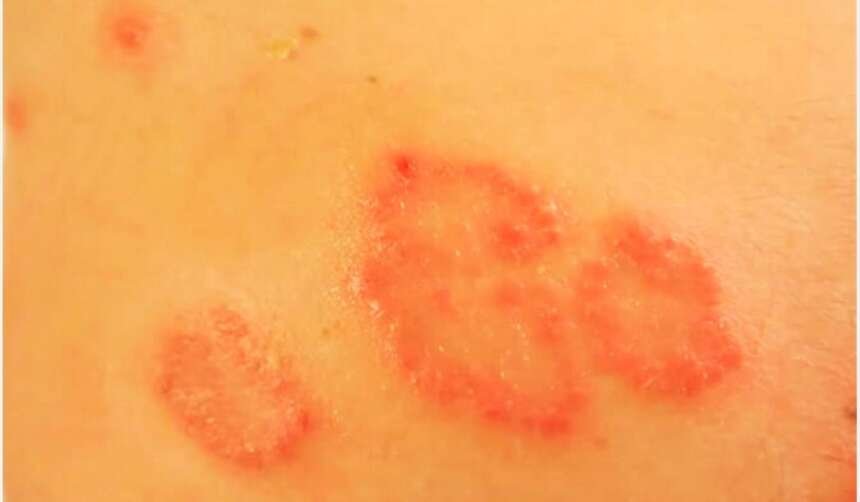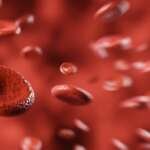While the root causes of nummular eczema are still being studied, research shows that diet and nutrition can play an important role in reducing flare-ups and symptoms.
Certain foods may trigger inflammatory responses that exacerbate eczema, while others provide nutrients that support skin health.
Understanding how your diet impacts your nummular eczema and making strategic adjustments can be an effective component of an eczema management plan.
The Role of Diet in Eczema
“Many of my patients see significant improvements in their eczema symptoms when we address their diet,” says Dr. Michelle Rodrigues, a dermatologist and eczema specialist.
“Identifying and removing trigger foods that worsen inflammation along with emphasizing anti-inflammatory foods and nutrients can reduce flare frequency and severity.”
Some key ways diet influences nummular eczema:
- Food allergies/sensitivities – Allergic reactions to foods like eggs, dairy, soy, wheat, nuts can trigger inflammatory immune responses that exacerbate eczema.
- Nutrient deficiencies – Being deficient in nutrients like vitamin D, zinc, vitamin C or healthy fats can negatively impact skin barrier function.
- Inflammatory foods – Certain foods like alcohol, refined carbs, excessive dairy and meat, fried foods and sugar can increase overall inflammation.
- Dehydration – Not drinking enough water can worsen dry skin associated with eczema.
- Gut health – An imbalance of healthy/unhealthy gut bacteria caused by diet may contribute to skin inflammation.
Using Elimination Diets to Identify Eczema Triggers
Removing foods from your diet and then systematically reintroducing them one at a time can help identify triggers specific to you.
“I recommend a regimented elimination diet supervised by a doctor or dietitian for my patients with severe eczema,” advises Dr. Rodrigues. “This usually involves cutting out the most common trigger foods for 2-4 weeks – dairy, eggs, nuts, soy, wheat – then adding them back in slowly while monitoring symptoms. Food journaling is extremely helpful.”
For moderate eczema, Dr. Rodrigues suggests a modified approach: “Try eliminating just one or two suspect foods at a time for a few weeks to see improvement. Dairy and high-glycemic foods are common culprits I tell patients to start with.”
Identifying your unique eczema diet triggers enables you to remove those foods and experience sustained improvement in flare-ups and skin irritation.
The Best Anti-Inflammatory Foods for Nummular Eczema
Adding more anti-inflammatory foods can be just as important as eliminating triggers. “I always encourage my eczema patients to emphasize a ‘rainbow diet’ – fruits, vegetables, beans, nuts, seeds, whole grains in a wide range of colors,” says Jessica Miller, RD, a dermatology nutrition specialist.
Miller recommends focusing on foods with antioxidants, omega-3s, and polyphenols to reduce inflammatory responses:
- Fatty fish like salmon, mackerel, sardines
- Walnuts, flaxseed, chia for omega-3s
- Colorful fruits and vegetables – blueberries, spinach, kale, tomatoes
- Tart cherries, pineapple, strawberries, citrus fruits
- Green tea, dark chocolate (>70% cocoa)
- Turmeric, ginger, garlic, onions, scallions
- Beans/lentils for fiber to support healthy gut flora
“A Mediterranean-style diet pattern high in plant foods, fish and healthy fats consistently shows benefits for reducing inflammation,” advises Miller.
Read More: Nummular Eczema Treatment Options: Finding the Right Regimen for You
Lifestyle Changes That Can Improve Eczema Symptoms
Beyond your plate, other nutrition and lifestyle factors can dampen inflammation and irritation associated with nummular eczema. Jessica Miller offers some best practice tips:
Stay well hydrated – “Be sure to drink plenty of water throughout the day to maintain skin barrier health.” Aim for 9-12 cups daily.
Supplement wisely – “For many patients, I recommend supplements that support skin like vitamin D, fish oil, probiotics. But get tested first and consult a doctor.”
Manage stress – “Chronic stress takes a toll on the whole body and can worsen inflammation. Regular exercise, meditation, yoga, or just relaxing can help.”
Get enough sleep – “Quality sleep is vital for skin cell turnover and reducing inflammation. Prioritize 7-9 hours per night.”
Consider probiotics – “Oral probiotics or fermented foods like kefir, kimchi, sauerkraut can improve gut health and may support skin.”
Don’t smoke – “Avoiding smoking and secondhand smoke is important to minimize skin irritation and cellular damage.”
Sample 7-Day Eczema Diet Meal Plan
Planning nutritious, eczema-friendly meals may seem daunting. Registered dietitian Jessica Miller designed this sample meal plan to provide anti-inflammatory benefits:
Monday
Breakfast: Oatmeal with bananas, walnuts, cinnamon
Lunch: Stir fried tempeh, bok choy, carrots over quinoa
Dinner: Baked salmon with sweet potato and broccoli
Tuesday
Breakfast: Greek yogurt with blueberries, chia seeds
Lunch: Lentil soup with spinach salad
Dinner: Chicken curry with cauliflower rice
Wednesday
Breakfast: Avocado toast on sprouted grain bread
Lunch: Grilled chicken wrap with lettuce, tomato, avocado
Dinner: Veggie & black bean tacos with salsa, guacamole
Thursday
Breakfast: Egg white frittata with peppers, onions, greens
Lunch: Tuna & white bean salad over mixed greens
Dinner: Turkey meatballs with marinara sauce, zucchini noodles
Friday
Breakfast: Nut butter and banana smoothie
Lunch: Quinoa tabbouleh salad with chickpeas
Dinner: Grilled shrimp skewers with roasted Brussels sprouts
Saturday
Breakfast: Veggie scramble with sweet potato hash
Lunch: Butternut squash soup
Dinner: Chicken baked in parchment paper with carrots, sweet potato
Sunday
Breakfast: Overnight oats with chia seeds, almond milk
Lunch: Open-faced smoked salmon toast
Dinner: Slow cooker chicken stew with potatoes, carrots, spinach
“Focus on getting plenty of vegetables, fruits, lean proteins, anti-inflammatory fats and spices at each meal,” suggests Miller. “Meal planning helps ensure you get a variety of skin-supportive nutrients.”
Work With a Doctor or Dietitian for Customized Diet Guidance
While information on eczema-friendly diets abounds, it’s important to work with a knowledgeable health professional to tailor nutritional changes to your unique situation.
“Generic diet advice may not account for your full medical history, nutritional status, food preferences, metabolic factors, and eczema severity,” cautions Dr. Rodrigues. “I refer my patients to dietitians skilled in eczema nutrition for personalized diet support.”
Registered dietitian Jessica Miller agrees: “My job is to collaborate with patients and their doctors to provide tailored eczema diet recommendations they can realistically maintain. Small steps implemented consistently under medical guidance provide the best results.”
Adjusting your diet with a doctor or dietitian’s help can be an empowering way to gain control over frustrating nummular eczema flare-ups.
While nutrition is just one part of an eczema management strategy, the right diet choices can assist your skin health journey.
With some education and planning, you may find that what you eat makes a real difference in soothing your eczema symptoms.








